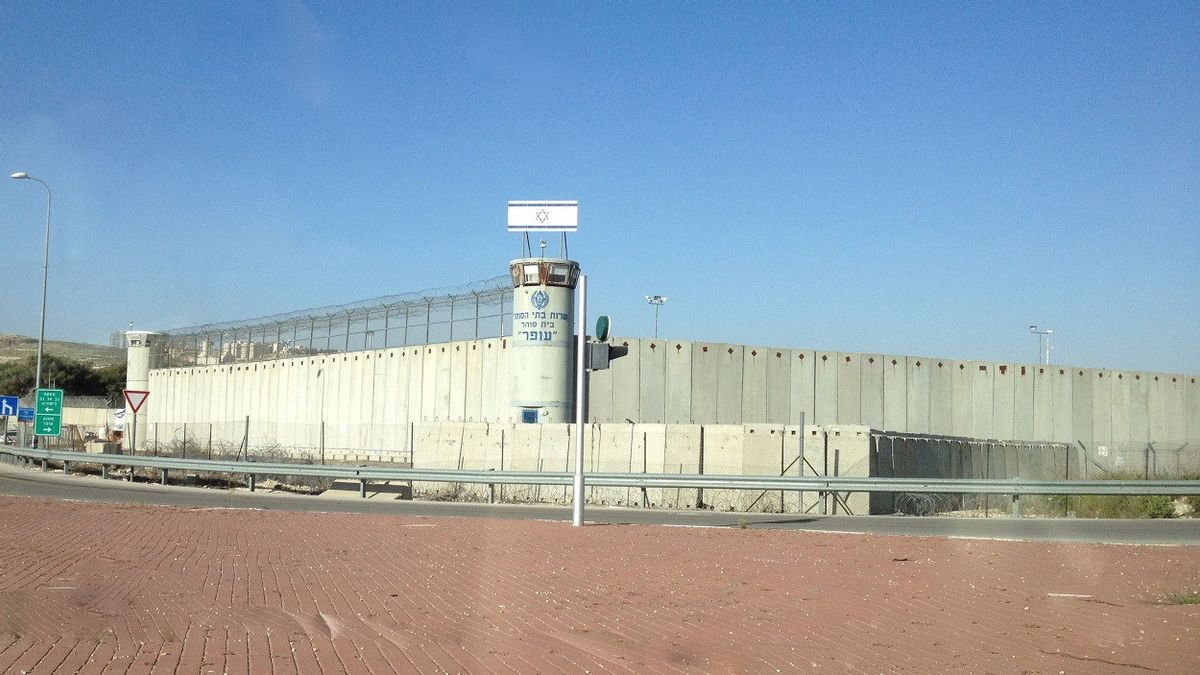JAKARTA - About 250 Palestinian prisoners launched a hunger strike on Wednesday in protest against what they claim are the repressive conditions imposed on Israeli prisons since six prisoners escaped from Gilboa Prison and were recaptured, according to the Palestinian Islamic Jihad movement (PIJ). .
PIJ said the hunger strike was a protest against what he called the repressive measures that had been applied to PIJ detainees since last September. The alleged actions include the isolation and distribution of detainees to separate rooms to prevent them from holding meetings, according to the announcement.
In addition to the action of 250 prisoners, it is known that six Palestinian prisoners had previously been on hunger strike for a long time, including Kayed Fasfous (91 days), Muqdad Qawasmeh (84 days), Alaa Aaraj (67 days), Hesham Abu Hawwash (58 days), Rayeq Besharat (53 days). ) and Shadi Abu Akr (50 days), according to the Palestinian WAFA news agency.
Fasfous and Qawasameh are both in serious condition and refuse to receive medical assistance, according to Palestinian reports. Fasfous has lost 30 kilograms and is hospitalized at Barzilai Medical Center, according to WAFA.
Meanwhile, Qawasameh was hospitalized at Kaplan Medical Center in a serious condition, with his family telling Palestinian media on Tuesday that he was in severe pain, suffering from memory loss and difficulty speaking.
Hamas leader Ismail Haniyeh called Qawasmeh on Saturday, telling him that the issue of Palestinian prisoners was still a priority for the Hamas movement and Palestinian factions, according to Palestinian reports.
The Hamas movement announced on Saturday it is closely following up on hunger strike prisoners and has been in contact with a number of parties, including Egyptian officials, on the matter.
"We have told the brothers in Egypt that the continuation of the prisoners' strike and the stubbornness of the occupation could lead to the whole region with unimaginable consequences," said Hussam Badran, a member of Hamas' political bureau, citing The Jerusalem Post Oct. 13.
The International Committee of the Red Cross (ICRC) recently stated that it was 'deeply concerned' by Fasfous and Qawasmeh's deteriorating health, warning of the "possibly irreversible consequences" of such a long hunger strike. The ICRC encourages relevant parties to find solutions to prevent casualties.
In a recent meeting between Hamas leaders and Egyptian officials, Hamas officials pushed for progress on a prisoner swap agreement with Israel, stressing that they would not budge on its demands in such a deal, according to Arab reports.
Hamas is still holding Israeli citizens Avera Mengistu and Hisham al-Sayed. As well as two corpses of IDF soldiers St.-Sgt. Oron Shaul and Lt. Hadar Goldin.
Hamas official Mohammad Nazzal told Hezbollah-affiliated Al-Mayadeen news recently that Hamas intends to reach an agreement that achieves the release of the largest number of Palestinian prisoners, including Marwan Barghouti and Ahmad Sa'adat and has provided Egyptian officials with a detailed path based on movement demands.
Palestine's Safa News Agency reported last week that the Hamas delegation to Egypt had warned the situation could "explode" as happened in May during Operation Wall Guarding, because of what it called continued Israeli violations and crimes in Jerusalem and against prisoners, as well as continued settlement construction. .
To note, administrative detention in Israeli prisons is a special status in which a prisoner can dispute their release in a judicial process, but the standard of process does not offer the same protection as a regular criminal court.
Because some of the evidence against administrative detainees is based on classified intelligence, their defense attorneys often complain they cannot properly defend their clients because only the courts can see the full evidence file.
Administrative detention was first enacted into law in the Defense Regulations by the British Mandate in 1945 to combat Arab and Jewish riots and rebellions in the area. These regulations include curfews, censorship measures, restrictions on movement and deportation.
The English, Chinese, Japanese, Arabic, and French versions are automatically generated by the AI. So there may still be inaccuracies in translating, please always see Indonesian as our main language. (system supported by DigitalSiber.id)













